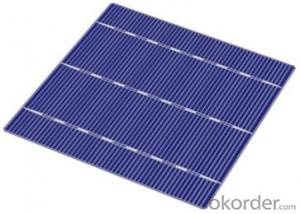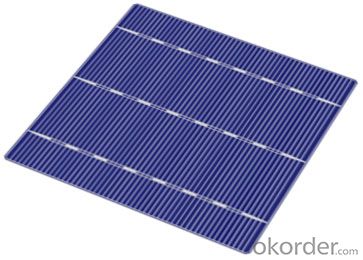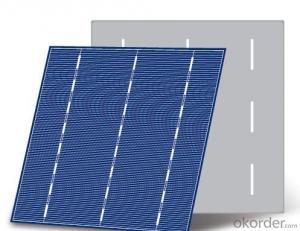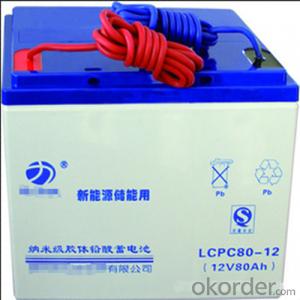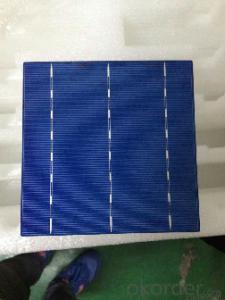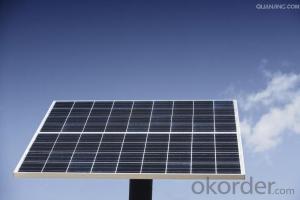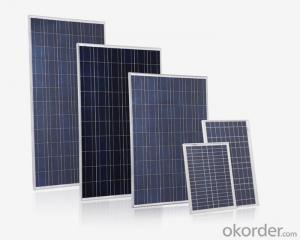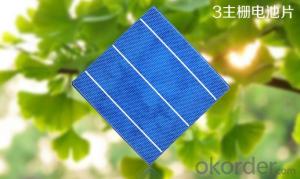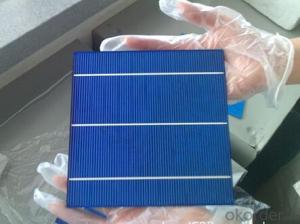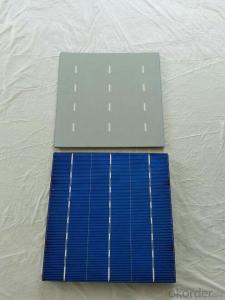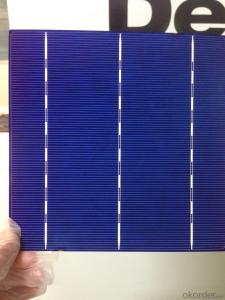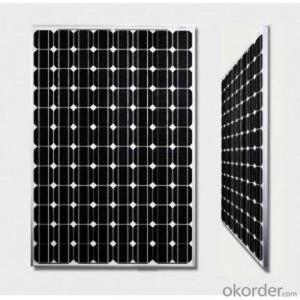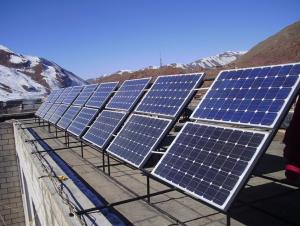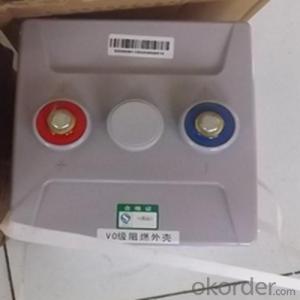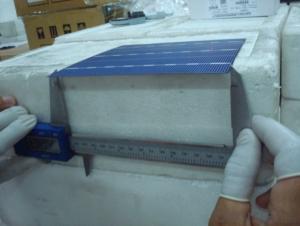Thin Film Solar Cells 3bb Chain
- Loading Port:
- China Main Port
- Payment Terms:
- TT OR LC
- Min Order Qty:
- -
- Supply Capability:
- -
OKorder Service Pledge
Quality Product, Order Online Tracking, Timely Delivery
OKorder Financial Service
Credit Rating, Credit Services, Credit Purchasing
You Might Also Like
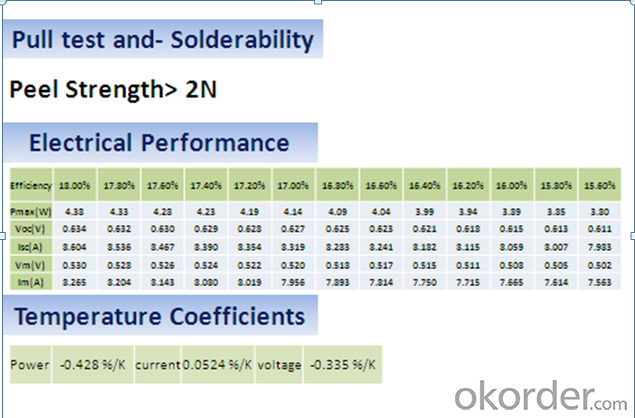
We supply regular mono 125x125mm and poly 156x156mm solar cells.
Cells made in China mainland and Taiwan are both available.
Cell production capacity yearly reach 1GW.
Our cells pattern include continuous and uncontinuous busbar to meet different cells line.
- Q: What are the advantages of monocrystalline silicon and polycrystalline silicon in solar power?
- no mechanical groove in the same area on the efficiency of 16%, using buried gate structure, mechanical groove in the 130 square centimeters of polycrystalline Battery efficiency of 15.8%. (1) monocrystalline silicon solar cells
- Q: Do you believe you can make a solar cell by using kitchenware?
- I do because I did it once.
- Q: Is the polymer solar cell the cheapest type among all the different kinds of solar cells?
- I am not sure about that.
- Q: How do solar cells affect property value?
- Solar cells can positively impact property value by increasing its market appeal and attractiveness to potential buyers. The presence of solar cells signifies energy efficiency, lower electricity costs, and environmental consciousness, which are all desirable qualities in a property. Additionally, solar cells can potentially generate income through net metering or selling excess energy back to the grid, further enhancing the value of the property.
- Q: Can solar cells be used for powering wildlife tracking devices?
- Yes, solar cells can be used for powering wildlife tracking devices. Solar panels can generate electricity from sunlight, which can then be stored in batteries to power tracking devices. This renewable energy solution is particularly useful for wildlife tracking as it eliminates the need for frequent battery replacements in remote areas.
- Q: Why are the poly Solar cell specifications is different from each other, they seem to have the different size of 125mm, 156mm, 152mm, is the 152mm's battery technology is higher than the other?
- We used the poly solar cell which is the 125mm size, which is good enough for our usage in the lab.
- Q: How many types of solar cells are now being used in real life?
- Generally, there are two types of solar cells, one is Monocrystalline silicon solar cells, the other is polycrystalline silicon solar cells
- Q: Can solar cells be used for powering remote oil and gas pipelines?
- Yes, solar cells can be used for powering remote oil and gas pipelines. Solar energy is a reliable and sustainable power source that can be harnessed in remote locations where traditional power infrastructure is limited or non-existent. Solar panels can be installed along the pipeline route to generate electricity, which can then be used to power various equipment, sensors, and monitoring systems necessary for the operation and maintenance of the pipelines. This reduces dependence on fossil fuels and provides an efficient and environmentally friendly solution for powering remote oil and gas pipelines.
- Q: How is the solar cells factories working in China? Do they follow certain quality standards?
- Of course, the follow the quality assurance standard, and in fact, they are as good as the solar cell factories in US.
- Q: Can solar cells be used in cloudy or rainy conditions?
- Yes, solar cells can still be used in cloudy or rainy conditions, although their efficiency may be reduced. While direct sunlight is ideal for optimal energy production, solar cells can still generate electricity from diffused or indirect sunlight that penetrates through clouds. However, their output will be lower compared to clear and sunny conditions.
Send your message to us
Thin Film Solar Cells 3bb Chain
- Loading Port:
- China Main Port
- Payment Terms:
- TT OR LC
- Min Order Qty:
- -
- Supply Capability:
- -
OKorder Service Pledge
Quality Product, Order Online Tracking, Timely Delivery
OKorder Financial Service
Credit Rating, Credit Services, Credit Purchasing
Similar products
Hot products
Hot Searches
Related keywords
